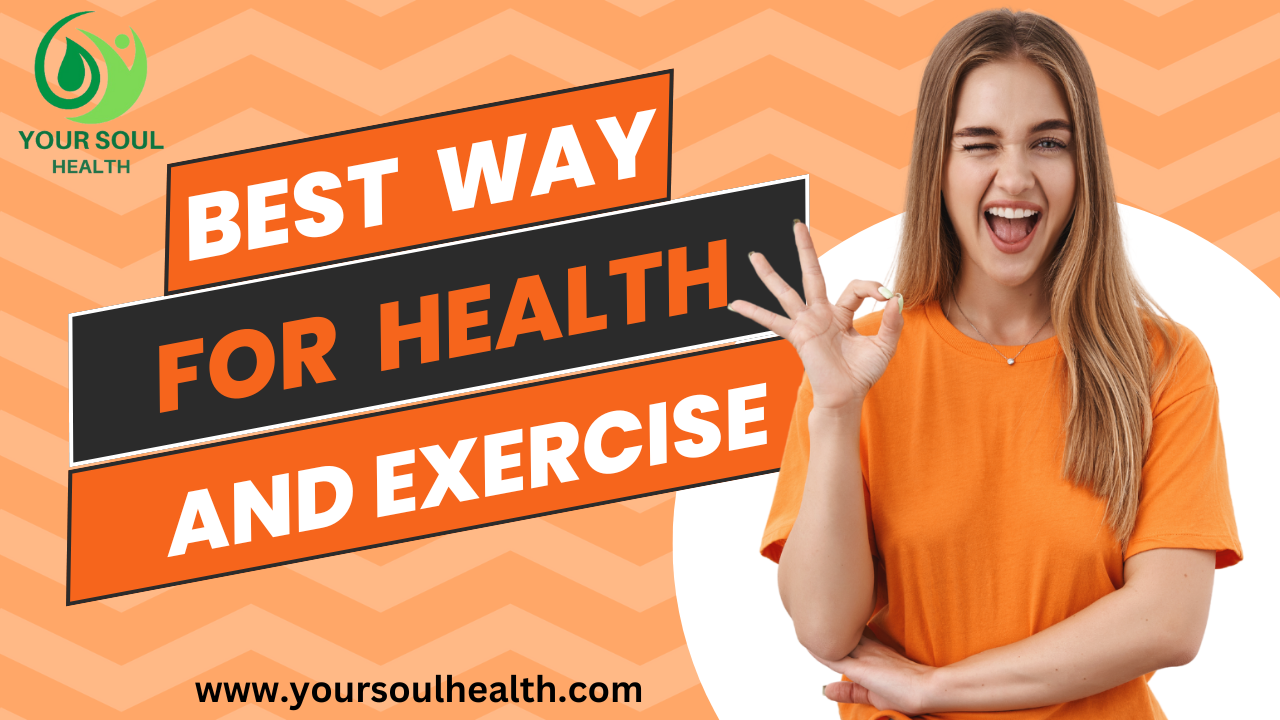Discover which statement is true about exercise and health as we delve into its profound effects on your well-being. Learn how to optimise your health through the power of physical activity.
In a world where health is wealth, understanding the true impact of exercise on our well-being is paramount. From boosting moods to preventing chronic diseases, regular physical activity offers a myriad of benefits that extend far beyond the confines of the gym. Let’s explore the correlation between exercise and health, debunking common myths and shedding light on evidence-backed truths.

Which Statement Is True About Exercise And Health Brainly
The statement that exercise is beneficial for both physical and mental health is undeniably true. Engaging in regular physical activity not only strengthens the body but also nurtures a healthy brain. Exercise promotes the release of endorphins, neurotransmitters responsible for feelings of happiness and well-being, thus reducing stress and anxiety. Moreover, it enhances cognitive function by improving memory, focus, and overall brain health. Scientific research consistently supports the positive correlation between exercise and mental well-being, highlighting its importance in maintaining a healthy brain throughout life.
Exploring the Connection Between Exercise and Health
In a world inundated with health advice, one topic remains a constant source of discussion: exercise and its impact on our well-being. But amidst the abundance of information, how do we discern fact from fiction? Let’s embark on a journey to uncover the truth behind the relationship between exercise and health.
Understanding Exercise
Exercise encompasses physical activity performed to improve health and fitness. It’s not about rigorous training or becoming a professional athlete but rather engaging in movements that benefit our bodies.
Benefits of Regular Exercise
Regular exercise offers a plethora of benefits, including improved cardiovascular health, enhanced mood, increased energy levels, and better sleep quality. It’s not just about physical appearance; it’s about feeling stronger and more vibrant from within.
Exercise and Mental Health
Exercise isn’t just a boon for the body; it’s also a powerful tool for mental well-being. Physical activity triggers the release of endorphins, which are neurotransmitters that improve happiness and reduce stress. It’s a remedy from nature for a rough day.
Types of Exercise
Exercise comes in various forms, including cardiovascular activities like running and cycling, strength training with weights or resistance bands, flexibility exercises like yoga, and functional movements such as squats and lunges. The secret is to figure out what suits you the best.

Importance of Consistency
Consistency is paramount when it comes to reaping the rewards of exercise. It’s not about sporadic bursts of activity but rather establishing a sustainable routine that becomes a part of your lifestyle. Small, consistent efforts yield significant results over time.
Exercise for Weight Management
While exercise alone may not be the sole solution for weight loss, it plays a crucial role in maintaining a healthy weight. By combining regular physical activity with a balanced diet, individuals can achieve sustainable weight-management goals.
Exercise and Disease Prevention
Regular exercise is a potent weapon in the fight against various diseases, including cardiovascular ailments, diabetes, and certain cancers. It strengthens the immune system, regulates blood sugar levels, and improves overall health, reducing the risk of chronic conditions.
Overcoming Barriers to Exercise
Many individuals face obstacles when it comes to exercise, such as lack of time, motivation, or resources. However, with determination and creativity, these barriers can be overcome. Whether it’s squeezing in quick workouts during lunch breaks or utilizing free online resources, there are always ways to prioritize physical activity.
Finding Enjoyment in Exercise
Exercise doesn’t have to feel like a chore; it can be enjoyable and fulfilling. Explore different activities, enlist the support of friends or family, or immerse yourself in nature. By discovering activities that bring you joy, exercise becomes something to look forward to rather than dread.
Exercise Safety Tips
Safety should always be a priority when engaging in physical activity. Remember to warm up before exercising, stay hydrated, use proper form to prevent injuries, and listen to your body’s signals. If you’re unsure about a particular activity, consult with a fitness professional.
Incorporating Exercise into Daily Life
Integrating exercise into your daily routine doesn’t have to be complicated. Take the stairs instead of the elevator, walk or bike to nearby destinations, or incorporate mini-workouts into your breaks. Every little bit of movement adds up and contributes to your overall well-being.
Setting Realistic Goals
When embarking on a fitness journey, it’s essential to set realistic and achievable goals. Whether it’s increasing the number of weekly workouts, improving endurance, or mastering a new exercise, setting small milestones keeps you motivated and on track.
Monitoring Progress
Tracking your progress is key to staying motivated and gauging your success. Keep a workout journal, use fitness apps to log your activities, or take regular measurements of your strength and endurance. Celebrate your achievements and adjust your goals accordingly.
The Role of Nutrition
Exercise and nutrition go hand in hand. Fuel your body with nutritious foods that provide the energy and nutrients needed to support your physical activities. Focus on whole foods, plenty of fruits and vegetables, lean proteins, and healthy fats to optimise your performance and recovery.
How does regular exercise help make us more alert and energetic?
Regular exercise plays a crucial role in enhancing alertness and boosting energy levels. When we engage in physical activity, our bodies release endorphins, which are natural chemicals that act as mood elevators, reducing feelings of stress and fatigue. Moreover, exercise promotes better circulation, delivering oxygen and nutrients to the brain more efficiently. This increased blood flow enhances cognitive function, sharpening focus and improving mental clarity.

Additionally, regular exercise helps regulate sleep patterns, ensuring more restful and rejuvenating sleep, further contributing to heightened alertness and sustained energy throughout the day. Overall, incorporating exercise into our routine not only benefits our physical health but also primes our minds for optimal performance, leaving us feeling more alert, energized, and ready to tackle whatever challenges come our way.
Frequently Asked Questions (FAQs)
1. Does exercise have to be intense to be beneficial? Exercise doesn’t have to be intense to be beneficial. Even moderate activities like brisk walking or gardening can improve health when done regularly.
2. How often should I exercise to maintain good health? The general recommendation is to aim for at least 150 minutes of moderate-intensity exercise or 75 minutes of vigorous activity per week, spread out over several days.
3. Can exercise help with stress relief? Yes, exercise can help alleviate stress by promoting the release of endorphins, which are natural mood lifters. Physical activity can offer a much-needed mental respite and a change of perspective.
4. Is it okay to exercise if I have a chronic health condition? In many cases, exercise can be beneficial for individuals with chronic health conditions. However, it’s crucial to consult with a healthcare professional to determine the most suitable type and intensity of exercise.
5. How can I maintain my motivation to work out frequently? Finding activities you enjoy, setting realistic goals, enlisting social support, and varying your routine can help maintain motivation. Remember to focus on the positive benefits of exercise and celebrate your progress along the way.
Embark on your journey to better health today by incorporating exercise into your daily routine. Keep in mind that every step you take will lead to a happier, healthier you!
Conclusion
In conclusion, the link between exercise and health is undeniable. Regular physical activity offers a myriad of benefits for both the body and mind, from improved cardiovascular health and weight management to enhanced mood and disease prevention. By making exercise a priority in our lives and adopting a consistent and enjoyable routine, we can embark on a journey towards a healthier and happier future.

I am a health writer and blogger based in the US and UK. I have been with the health department for six years. And I give advice on various health problems and solutions. I have a lot of experience in health matters and I share it here.

